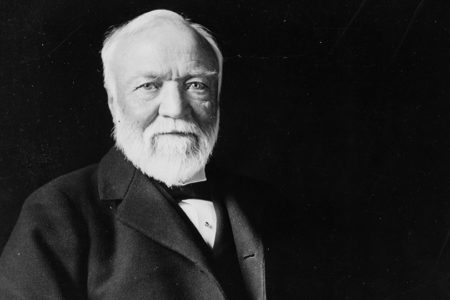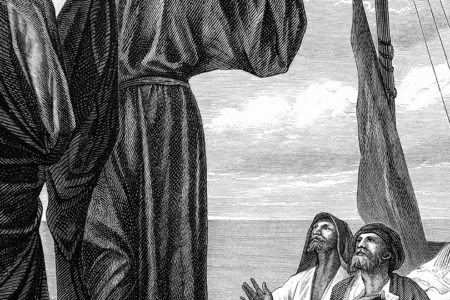The Changing Face of Dispensationalism
Years ago, a dispensationalist was someone who consistently viewed the church as distinct from Israel. Today there is CD and PD—and it’s important to know the difference.
*For definitions see Glossary.
A student recently came to my office and told me he had been to a conference with pastors from mainline churches. When he mentioned he was taking a course on Dispensationalism from me, one of the pastors replied, “Does that still exist?”
Dispensationalism,* which holds to a literal interpretation of Scripture, is one of the most maligned and misunderstood theological concepts in the church today. Many Christians have abandoned it, while others seek to redefine it.
The Big Retreat
Anglican evangelicals, such as popular theologian N. T. Wright, regard the American form of Dispensationalism (what they call “Left Behind theology”) as “bizarre” and contend it is unknown in British circles. However, long before Wright made his observation, American Reformed* theologians—such as John Gerstner and R. C. Sproul, who have shaped the thinking of today’s generation—had labeled Dispensationalism heresy.1
DISPENSATIONALISM
Get the full picture of this theological concept in Dispensationalism by Charles Ryrie.
The Emergent Church* has discarded Dispensationalism altogether as an obstacle to inclusiveness. And the modern church, appealing to millennials who largely steer clear of eschatology* (the study of future things), has little room for the broader teaching of futurism, much less the distinctions of Dispensationalism.
These trends, coupled with the recent popularity of Reformed teaching, have caused many seminaries and Bible colleges to retreat from defending Dispensational Theology.
In addition, more than two decades earlier, a reformulation of Classical Dispensationalism* (CD) had already spread throughout dispensational institutions. Known as Progressive Dispensationalism* (PD), this view attempts to understand the core tenets of Dispensational Theology through a so-called complementary interpretation, a confusing term in itself because it seeks to explain the equally confusing idea of an “already/not yet” and “both/and” eschatology.
PD’s central tenet teaches that the Abrahamic, Davidic, and New Covenants are already being progressively fulfilled today and will also be fulfilled in the Millennial Kingdom. Thus PD’s concept of futurism includes an aspect of present fulfillment in the church for the biblical covenants made with national Israel, while CD holds that the biblical covenants find their fulfillment exclusively in the Millennium.
Historical Overview
The first half of the 20th century witnessed a retreat from futurism with C. H. Dodd (1884–1973) and his “Realized Eschatology,”* which taught that the eschatological passages in the New Testament (drawn largely from the Old Testament) do not refer to the future but, rather, to the experiences of Jesus and the New Testament church.2
Many liberals, who preferred the principles of love and peace to the expectation of future apocalyptic destruction, embraced Dodd’s position. His view continues to influence evangelicals today through the writings of Wright and his “Kingdom Now” theology,* which largely characterizes the 21st-century “millennial” churches.
A different form of Kingdom Now Theology that also sees some or all Bible prophecies as fulfilled in historic events of the past is Preterism.* Once the provenance of liberal scholars, Preterism is now advanced by the teachings of conservative Christians such as radio “Bible Answer Man” Hank Hanegraaff and the late R.C. Sproul.3
Another evangelical, historic premillennialist,* Gordon E. Ladd, promoted Oscar Cullman’s “Inaugurated Eschatology,”* a view that taught the promises of the Kingdom Age were initially being realized in the Church Age.4 Many well-known, evangelical, premillennial scholars, such as D. A. Carson, have promoted this view, which forms the substance of Progressive Dispensationalism. It retains the CD distinctive concerning the future Kingdom, but also embraces a spiritual fulfillment of those promises within the Church Age.
Progressive Dispensationalism
Progressive Dispensationalism debuted in the 1990s as developed and defended in the works of evangelical scholars Craig A. Blaising (Southwestern Baptist Theological Seminary), Darrell L. Bock (Dallas Theological Seminary), and the late Robert L. Saucy (Talbot Seminary).
These authors claim their view simply revises the core tenets of Dispensationalism. But PD’s inclusion of tenets from opposing systems of interpretation obscures CD’s distinctives and makes possible a progression toward the next inevitable position: Amillennialism* or Postmillennialism.*
Evangelical theologian Walter A. Elwell observed, “The newer dispensationalism looks so much like non-dispensational pre-millennialism that one struggles to see any real difference.”5
Postmillennialist Keith Mathison stated,
In my opinion…progressive dispensationalists have moved closer to Reformed theology on a number of doctrines. They now acknowledge that the kingdom has been inaugurated and that there is a present as well as a future aspect of the kingdom. They have also recognized the two-peoples-of-God theory* to be unbiblical, which, ironically, brings us to the negative side of progressive dispensationalism. If the defining doctrine of dispensationalism is the two-peoples-of-God theory, then to reject that theory is to reject dispensationalism itself.6
CD vs. PD
Classical Dispensationalism has three essential distinctives:
- It makes a clear distinction between Israel and the church in God’s purposes.
- It employs a consistent, literal hermeneutic* (method of interpretation), especially when it comes to the prophetic Scripture.
- It maintains a doxological focus that sees the ultimate purpose of God as bringing glory to Himself.7
Let’s look at these three distinctives in greater detail.
1. Israel and the Church. Theologian Charles C. Ryrie said,
The one who fails to distinguish Israel and the church consistently will inevitably not hold to dispensational distinctions; and one who does will. Progressive dispensationalists seem to be blurring this distinction by saying that the concept is not in the same class as what is conveyed by the concepts of Gentiles, Israel, and Jews.8
Progressive dispensationalists maintain that the “one new man” of Ephesians 2:11–22 refers to the church as a continuation of believing Israelites in the Old Testament. Therefore, believing Jews and Gentiles constitute the “one people of God.”
This concept may be true on a redemptive level, but Gentiles and Jews are distinct historic people groups with distinct callings and promises within the biblical covenants. PD correctly sees the church as consisting of both the believing remnant of national Israel and the believing remnant of Gentiles, but it incorrectly views this unity as an “initial fulfillment” of the New Covenant, which God specifically made with Israel:
Behold, the days are coming, says the LORD, when I will make a new covenant with the house of Israel and with the house of Judah….I will put My law in their minds, and write it on their hearts; and I will be their God, and they shall be My people….For they all shall know Me, from the least of them to the greatest of them, says the LORD. For I will forgive their iniquity, and their sin I will remember no more (Jer. 31:31, 33–34).
The church’s participation in the New Covenant is a present, partial guarantee of the future, full realization of the promise in the Millennial Kingdom. It cannot be fulfilled literally until the Lord forgives the sins of the entire remnant of Israel and Judah, “from the least of them to the greatest of them” (a universal expression).
The apostle Paul said the present believing remnant of Jewish people exemplifies the future, full inclusion of national Israel. The Gentile nations are included through the spiritual promise to Abraham (Gen. 12:3):
At this present time there is a remnant according to the election of grace. Now if [Israel’s] fall is riches for the world, and their failure riches for the Gentiles, how much more their fullness! For I do not desire, brethren, that you should be ignorant of this mystery,…that blindness in part has happened to Israel until the fullness of the Gentiles has come in. And so all Israel will be saved (Rom. 11:5, 12, 25–26).
This text reveals the New Covenant cannot find initial fulfillment until the Second Advent of Messiah since Israel now remains blinded during the Church Age.
2. Literal Hermeneutic. Dispensationalism uses a consistent, literal method of interpreting Scripture. It takes the biblical text at face value, without imposing on it a theological interpretation foreign to the text. However, PD’s “complementary hermeneutic” redefines the understanding of the Old Testament through the lens of the New Testament.
It argues that Christ currently occupies King David’s throne in heaven. But the normal reading of the Old Testament understands David’s throne to be an earthly one promised to the Davidic dynasty in national Israel, even under the New Covenant (Jer. 33:17–22). It also views Christ as David’s descendant reigning in Israel as a Messianic promise to be fulfilled in the Millennial Kingdom (1 Chr. 17:14; cf. Ezek. 37:25).
Classical dispensationalists argue that the Bible never says David’s throne is in heaven during the Church Age. Instead, it specifies Christ will rule over “the house of Jacob”: “He [Jesus] will be great, and will be called the Son of the Highest; and the Lord God will give Him the throne of His father David. And He will reign over the house of Jacob forever” (Lk. 1:32–33). While PD still views Christ’s reign as a future reality (both/and), it changes the text’s plain meaning to accommodate its theology that the Kingdom’s initial fulfillment has already begun.
PD contradicts the fact the apostle Peter tied the Messiah’s return to set up His earthly Kingdom to Israel’s national repentance (Acts 3:19–21). How could the Kingdom be inaugurated in the Church Age if national Israel remains under divine discipline and its national repentance will take place only at the end of the Tribulation?* (See Matthew 24:29–30 and Luke 21:28.) Likewise, if Messiah’s reign on David’s earthly throne depends on Israel’s repentance, then Messiah cannot be sitting now on the throne of David.
PD confuses this distinction. One of PD’s formulators conceded the fact in a theological debate with an amillennial theologian. He said the term Israel is symbolic. Later, I asked him what he meant by that statement. He simply replied, without explanation, “It is both/and.”
In other words, PD teaches Israel both symbolizes the church and literally refers to national Israel as distinct from the church. PD’s “complementary” hermeneutic permits its adherents to call their view Dispensationalism, while embracing views from an opposing theological system whose core tenets spiritualize Israel.
3. Glory to God. Dispensationalism focuses on God’s glory as the ultimate purpose for His divine plan. Progressive Dispensationalism’s rejection of this doxological purpose reveals the extent to which its system functions more like Reformed Theology than Dispensationalism.
PD, like Reformed (Covenant) Theology, sees humanity’s redemption as the goal of “salvation history.” CD sees humanity’s salvation as a means to an end—God’s glory—not the end itself. As Ryrie stated, “Scripture is not man-centered as though salvation were the main theme, but it is God-centered because His glory is the center….The Bible is not centered in salvation history…but in God Himself.”9
Classical Dispensationalism sees God’s purposes with Israel and the church as distinct plans in history designed to bring Him glory only when each purpose is fulfilled (Rom. 11:30–33).
Cautionary Note
I want to caution those who hold to Classical Dispensationalism against overstatement in their critique of progressive dispensationalists, who may represent the dominant view of evangelical churches and seminaries today. Most advocates of PD hold to a pretribulational Rapture and believe in Messiah’s Second Coming to establish His Millennial Kingdom for Israel and the nations. They are also among the leading defenders of the evangelical faith and strong supporters of the Jewish people and the State of Israel.
My concern is for the next generation of progressive dispensationalists who may move beyond the theology of the founders. In his treatise Theology Adrift: The Early Church Fathers and Their Views of Eschatology, D. Matthew Allen explains that the eschatological shift in the ancient church from Premillennialism to Amillennialism began when the church lost its understanding of Israel as a uniquely chosen people of God with specific promises from God yet to be fulfilled.10
Hopefully, recognizing how redefinition has occurred may aid this generation of Bible students against further redefining terms and encourage them to rethink how perceived progress may in fact be a retreat from established truths.
ENDNOTES
-
*See Glossary.
- John H. Gerstner, Wrongly Dividing the Word of Truth: A Critique of Dispensationalism (Brentwood, TN: Wolgemuth & Hyatt, 1991), 68.
- C. H. Dodd, “The Kingdom of God Has Come,” Expository Times 48, no. 3 (1936) and H. G. Wood, The Kingdom of God and History (London: Allen and Unwin, 1938).
- R. C. Sproul, The Last Days According to Jesus: When Did Jesus Say He Would Return? (Grand Rapids, MI: Baker Books, 1998). Hank Hanegraaff, The Apocalypse Code: Find Out What the Bible Really Says About the End Times and Why It Matters Today (Nashville, TN: Thomas Nelson, 2007).
- Ladd taught the “already/not yet” view in his essential writings on eschatology: Crucial Questions about the Kingdom of God (1952); Jesus and the Kingdom (1964); A Theology of the New Testament (1974); The Meaning of the Millennium: Four Views (1977); The Last Things (1978); The Blessed Hope (1990); The Gospel of the Kingdom (1990); and his most influential book, The Presence of the Future (1996).
- Walter A. Elwell, “Sidebar: Dispensationalisms of the Third Kind,” Christianity Today, September 12, 1994, 28.
- Keith A. Mathison, Dispensationalism: Rightly Dividing the People of God? (n.p.: P&R Publishing, 2012), Appendix A, 135.
- These are the three sine qua nons given by Charles C. Ryrie. See Ryrie, Dispensationalism (Chicago, IL: Moody Publishers, 2007), 39–40. I also am indebted to H. Wayne House for many of the contrasts between CD and PD found in his paper “Danger of Progressive Dispensationalism to Pre-Millennial Theology: Reflections of a Pre-Progressive Dispensationalist,” Pre-Trib Research Center, December 2003 <tinyurl.com/yau2l2nn>.
- Ryrie, 39.
- Ibid., 40.
- D. Matthew Allen, Theology Adrift: The Early Church Fathers and Their Views of Eschatology, Bible.org, May 25, 2004 <tinyurl.com/yatr7tbu>.









A third form of Dispensationalism is the ‘Hebrew Roots Movement’. Their rationale is: “Since we’re going to have to keep the Feast of Tabernacles during the Millennium, we may as well start now”. It has resulted in a rethink of the meaning of key New Testament passages like Acts 15; Galatians and Hebrews – and even a rethink of the ‘gospel’ itself, and the place of the Law today.
I wonder therefore whether a determining question in Dispensationalisms is not so much whether Israel remains distinct from the Church; but the question of whether the idea that anyone must offer animal-sacrifices in future is consistent with the New Testament.
Taking Old Testament visionary Prophecies on face value, it would seem impossible to think that the sacrifices described in Prophecy would be for anything other than for iniquity. Nothing in the texts could make you think the sacrifices could be for something else – say, for a ‘memorial’ – instead of for iniquity. You would have to put a major interpretive twist to it to say it’s going to be for a ‘memorial’ and not that it was for ‘iniquity’.
And by the same token, taking Jesus’, Paul’s and Peter’s statements on face value, there isn’t any thing stated in the texts to give you reason not to think that the order of future-events is to be: Second Coming; resurrection; Rapture, at the last trump, at His coming; final judgment; and end of the heavens and earth – and that it is all to happen on the last day, the day of the Lord. To rearrange their order of events; and to spread the events of the ‘last’ day over 1007 years, is to take the text significantly more complicatedly and even plain differently to what it seems to say on face value.
It saddens me when the gospel takes a second fiddle to our theological systems whether it be classical dispensationalism, progressive dispensationalism, covenant theology or other. I understand the benefit and even necessity of interpretive frameworks, but when these frameworks cause disciples of Jesus to lay aside a love for one another for the sake of “truth” and being “right” we walk in disobedience to Jesus’s command- “A new commandment I Give to you, that you love one another, even as I have loved you, that you also love one another. By this all men will know that you are My disciples, if you have love for one another” (John 13:34-35, also see 15:12 and 15:17). Truth is a Person (John 14:16) and being right is humility before Jesus. There is value in formulating and even espousing theological systems, but only is far as they lead us to love God and love others more (especially His family!). We must always remember that Classical Dispensationalism, Progressive Dispensationalism, Covenant Theology, or any other theological system are not infallible and none of these have a corner market on the whole truth. They are tools to help us fallen humans who see the radiant Glory of a Holy God dimly make sense of His perfect purpose, will, and plan. God has made the Gospel crystal clear, and as we move further from the focus of the Gospel we must consciously and willingly lighten our death grip on our theological systems (not abandoning them- but holding them in humility, understanding that they are incomplete and insufficient in defining or explaining the fullness of God, and His ways).
Thank you for this excellent article. I find that many of our young pastors are no longer taught about Dispensationalism in Bible College or Seminary. Rather, they are taught to focus on Kingdom Now and Covenant Theology which ultimately leads to a focus on ‘works.’
Accompanying this trend, is and underlying anger – and yes, from both views. I am concerned about the vehement rhetoric by those who reject Dispensationalism – calling it ‘left behind’ idiocy and worse. This anger is palpable in many churches and even causes Dispensationalists to back off debating. How can we be afraid? We must study the scriptures together and reason with one another but it seems to me the enemy is at work as usual dividing believers.
Since the Bible teaches that there will be a great falling away/the great apostasy, I hope and pray that we can break through this trend, I worry that it will cause some to fall away, blinded by their anger.
Michael…
Mt 24:29…”Immediately after the tribulation of those days the sun will be darkened, and the moon will not give its light, and the stars will fall from heaven and the powers of the heavens will be shaken;…”
Mat 27:45…”Now from the sixth hour there was darkness over all the land until the ninth hour.”
Mark 15:33…”And when the sixth hour had come, there was darkness over the whole land until the ninth hour.”
Luke 23:44…”It was now about the sixth hour, and there was darkness over the whole land until the ninth hour,” 45a) “while the sun’s light failed;”
Mat 27:51…”And behold, the curtain of the temple was torn in two, from top to bottom; and the earth shook, and the rocks were split;”
Mar 15:38…”And the curtain of the temple was torn in two, from top to bottom.”
Luk 23:45b…”and the curtain of the temple was torn in two.”
Matthew Henry commentary on Matthew 24:29, 34…..”The darkening of the sun, moon, and stars,” which were made to rule over the day, and over the night…signifies the putting down of all rule, authority, and power…that the kingdom may be delivered up to God, even the Father, and he may be All in all… The sun was darkened at the death of Christ, for then was in one sense the judgment of this world (Jn. 12:31), an indication of what would be at the general judgment.
Verse 34:… “As to these things, the wars, seductions, and persecutions, here foretold, and especially the ruin of the Jewish nation; “This generation shall not pass away, till all these things be fulfilled;” there are those now alive, that shall see Jerusalem destroyed, and the Jewish church brought to an end.’ Because it might seem strange, he backs it with a solemn asseveration; “Verily, I say unto you….” You may take my word for it, these things are at the door.’ Christ often speaks of the nearness of that desolation, the more to affect people, and quicken them to prepare for it.
Maybe the reason churches and theologians are moving away from dispensationalism is the fact that, while claiming to employ a strictly literal hermeneutic, dispensationalism repeatedly departs from it when convenient (See locusts turning into helicopters, etc., in Revelation. The “literalness” goes out the window completely!) How many know that between 1948 and 1988, there were so many “literalists” that had always held that a biblical “generation” was about 40 years, thereby predicting the Rapture before 1988, because in Mt 24:34, Jesus said everything that preceded that verse would occur BEFORE that generation passed? There are so many holes in dispensationalism that people have been forced by their integrity to the Bible to question and ultimately abandon it.
The Lord said, “When you see ALL these things…” We haven’t yet, e.g. the sun will be darkened. You can be premill’ dispensationalist and believe locusts means locusts. But, most importantly, God made an unconditional promise to Abraham, and God keeps His promises; so there must be a future for Israel in their rightful land.
Dear Dr.Price,
I would like your definition of Reformed Teaching. Are your referring to a modern interpretation or the teaching of Luther, Calvin and the others who stood against the Roman church in Europe and the Anglican church of England?
I read Calvin’s Institutes and cannot find any replacement theology. I also read the Puritan fathers and the same is true. As far as I can understand, neither depart from traditional or “classical” definition of dispensationalism. They preach Jesus Christ, Son of God, Lord and Savior. Virgin born, lived a perfect life, crucified by ungodly men, resurrected from the dead and who rose to sit at the right hand of God the Father. That’s the Gospel. They also give counsel on the living of the Christian life, as directed by the Holy Spirit and God’s Word. Problem?
Jesus said: “All authority has be given to me in heaven and on earth. Go therefore and make disciples of all nations, baptizing them in the name of the Father and the Son and the Holy Spirit, teaching them to observe all that I commanded you; and lo, I am with you always, even to the end of the age” (Mt 28:18-20).
We are commanded to take the Gospel to all men and nations and warned to avoid “foolish controversies and genealogies and disputes about the Law, for they are unprofitable and worthless. Reject a factious man…..knowing that such a man is perverted and is sinning, being self-condemned”. (Titus 3:9)
If there are pastors and churches that openly defy the Word of God and believe in a different Gospel, we are to correct them by the Word of God. If they repent not, then we are to hand them over to God. Only He knows the ‘hearts of men”.
” Be shrewd as serpents and innocent as doves”. (Mt 10:16)
Gary Sackman
You have Ladd’s first name wrong in this article. It is not Gordon. I believe you had George Eldon Ladd in mind.
Very clear explanation of CD and PD. Thank you Dr. Price.
Why is the ‘university’ name omitted from an of Dr. Price’s articles? Liberty University is where our two boys attended and now we have a granddaughter who is a junior there now. The listing of both D. A. Carson and Darrell Bock supporting the PD is sad news; this enforces Hebrews 12:2a that believers are to keep their eyes on Jesus.
John Nelson Darby is noted in the theological world as the father of “dispensationalism” in the 1830s.
It was from Darby’s influence that Schofield spread the doctrine in America. Not very hard to prove
Thank you for this article. As a Pastor and 50+ yr. student of God’s Word I’ve been stunned by the departure from the PLAIN teaching of His Word by recent “theologians.” The Bible is NOT hard to understand if you allow it to speak plainly. Ephesians 2 &3 are NOT unclear about the Church being a distinct (from Israel) body of redeemed people. Again, thank you for this article.
Wonderful, very clear explanation, Dr. Price!
You made clear distinctions between the differing views. I am glad our Bible teaching Pastor holds the Classic Dispensation belief. Jesus is seated in heaven next to the Father interceding for us now.
Thank you. I held this for 40 years.
Wow! This explains a lot! Thank YOU for publishing it, and thank you for your consistent stand on Biblical principles.
I am a dyed in the wool premill CD and will be to my last breath….so help me God! As a lifelong rationally grounded industrial scientist, now Biotech consultant, I instantly recognized and embraced the incisive exposition of Scofield’s dispensationalism when taught by a lifelong dispensational pastor of a microchurch in PA about 25 years ago. And I never looked back to viewing the Bible through a glass darkly with its numerous seeming inconsistencies, to me troubling, in the divinely inspired inerrant Scriptures. Praise the Lord for Scofield’s Rightly Dividing the Word of Truth, largely based on his annotations and footnotes in the 1917 edition of the KJV. Scofield’s logical bullet point presentation, reflecting his rational legal mindset akin to Paul, was a truly eye opening experience that appealed to my scientific mindset. I personally believe it is difficult to understand and reconcile Bible events without a dispensational overlay, further linked to the 8 conditional and unconditional covenants with humanity, most prominently to the Jews as His forever Chosen People. And equally importantly to me, premill dispensationalism provides a persuasive apologetical or even polemical tool when challenged by unbelievers or heretic Christians or CINOs embracing Replacement Theology or Calvinism. Similarly highly relevant is his tract, The Biggest Failure of the Church, in embracing ecumenism and seeking to reform society rather than focusing on our foremost earthly mission: to save a “few” among the “many” in Jesus’ words who will spend eternity suffering in a literal hell, again as told by the ever truthful Jesus in the true story in Luke 16;19-31.
The Conclusion I have come to after weighing all these views is this. I believe the confusion lies with Apostle Paul and his commission to the gentiles. The 12 were clearly under the Great Commission with its Kingdom Gospel.The secret plan of Christ grafting in the Gentiles in Acts 9 on the Damascus Rd choosing Saul/Paul is where the Dispensational change occurs. Paul’s revelation was gradually revealed to the 12 over time. The 12 never left Jerusalem, for the receiving of the Kingdom and its Commission to be started was dependent upon Israel’s National Repentance. So due to Israel’s fall, God in his Mercy chose Saul/Paul, and the Mystery is Revealed, the Gospel of Grace, the formation of the New Creation, the Body of Christ that was a secret. I truly believe the Kingdom church is the Mother church of the Body of Christ, but distinctly Jewish and translated into the Kingdom of Christ Spiritually for the Apostles letters are to the scattered believing Jews.They under the direction of the Holy Spirit Submitted themselves to Paul’s Gospel ( like a wife to husband) when they gave he and Barnabas the Right Hand of fellowship when he revealed the Gospel he was preaching to the Gentiles of Grace alone and no works of the law, for Christ is the Head of his Body and sits a at the Right Hand of God. Ruling His body/church/ bride, that includes the believing jewish remnant and the believing gentiles forming the new family of God, the Circumcision of the Spirit by the hands of God and not man. This does not in any way change the future physical promises of the Literal Earthly Kingdom. We gentiles are blessed with the partial Spiritual Blessing of the New Covenant based in the Faith of Abraham. The Church was taken out of Israel,( but you can’t take Israel out of the church) Christ in the flesh is Jewish, the Kingdom church is Jewish. I do not believe in Already not yet. I believe the future is secured by the Resurrection, but as Paul would say, we are living in an Evil age and the end of the church age, will be one of perilous times. We inherit the Kingdom, we don’t build it by our good works. Christ himself stated He will build his Church. He will Establish the Kingdom when he returns. We have no part in either. We are His ambassadors. Our Holy City resides in Heaven the New Jerusalem/John14/Rom 9:7-8, 11:1,5-17/Gal 4:26-28/Heb 12:22-24.
Too many words; too many theories. My question is, why isn’t Jesus enough? God gave Adam and Eve one command and they blew it. Now everything is screwed up.